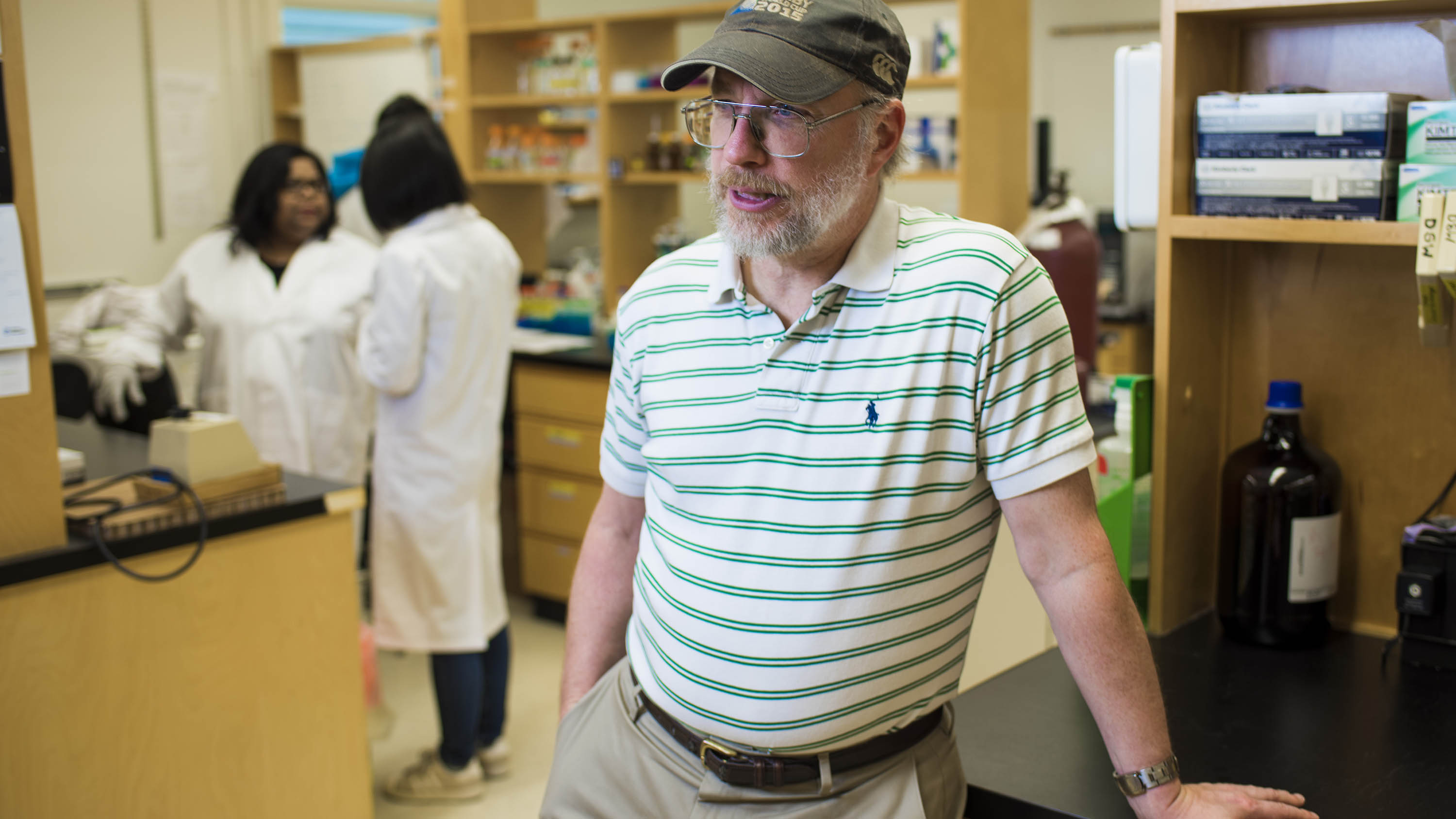While cancer is a genetic disease, the genetic component is just one piece of the puzzle — and researchers need to consider environmental and metabolic factors as well, according to a research review by a leading expert at the University of Alberta.
Nearly all the theories about the causes of cancer that have emerged over the past several centuries can be sorted into three larger groups, said David Wishart, professor in the departments of biological sciences and computing science. The first is cancer as a genetic disease, focusing on the genome, or the set of genetic instructions that you are born with. The second is cancer as an environmental disease, focusing on the exposome, which includes everything your body is exposed to throughout your life. The third is cancer as a metabolic disease, focusing on the metabolome, all the chemical byproducts of the process of metabolism.
The metabolic perspective hasn’t had much research until now, but it’s gaining the interest of more scientists, who are beginning to understand the metabolome’s role in cancer.
The genome, exposome and metabolome operate together in a feedback loop as cancer develops and spreads.
According to the data, heritable cancers account for just five to 10 per cent of all cancers, Wishart said. The other 90 to 95 per cent are initiated by factors in the exposome, which in turn trigger genetic mutations.
“That’s an important thing to consider, because it says that cancer isn’t inevitable.”
The metabolome is critical to the process, as those genetically mutated cancer cells are sustained by the cancer-specific metabolome.
“Cancer is genetic, but often the mutation itself isn’t enough,” said Wishart. As cancer develops and spreads in the body, it creates its own environment and introduces certain metabolites. “It becomes a self-fuelled disease. And that’s where cancer as a metabolic disorder becomes really important.”
The multi-omics perspective, in which the genome, exposome and metabolome are all considered in unison when thinking about cancer, is showing promise for finding treatments and for overcoming the limitations of looking at only one of these factors.
For example, Wishart explained, researchers who focus only on the genetic perspective are looking to address particular mutations. The problem is, there are around 1,000 genes that can become cancerous when mutated, and it typically takes at least two different mutations within these cells for cancer to grow. That means there are a million potential mutation pairs, and “it becomes hopeless” to narrow down the possibilities when seeking new treatments.
But when considering cancer from the metabolic perspective, there are just four major metabolic types, said Wishart. Rather than trying to find a treatment plan for one specific mutation combination amongst a million, determining the patient’s cancer metabolic type can immediately guide doctors in deciding on the best treatment for their specific cancer.
“It really doesn't make a difference where the cancer is — it’s something you’ve got to get rid of. It’s how it thrives or grows that matters,” said Wishart. “It becomes a question of, ‘What’s the fuel that powers this engine?’”
Wishart cautioned that health-care providers still need a mix of therapeutics for cancer, and noted that a deeper understanding of the metabolome and its role in the cancer feedback loop is also critical to preventing cancer.
“If we understand the causes of cancer, then we can start highlighting the known causes, the lifestyle issues that introduce or increase our risk,” he said.
“From the prevention side, changing our metabolism through lifestyle adjustments will make a huge difference in the incidence of cancer.”
The research review was funded by Genome Canada, the Canadian Institutes of Health Research and the Canada Foundation for Innovation.
